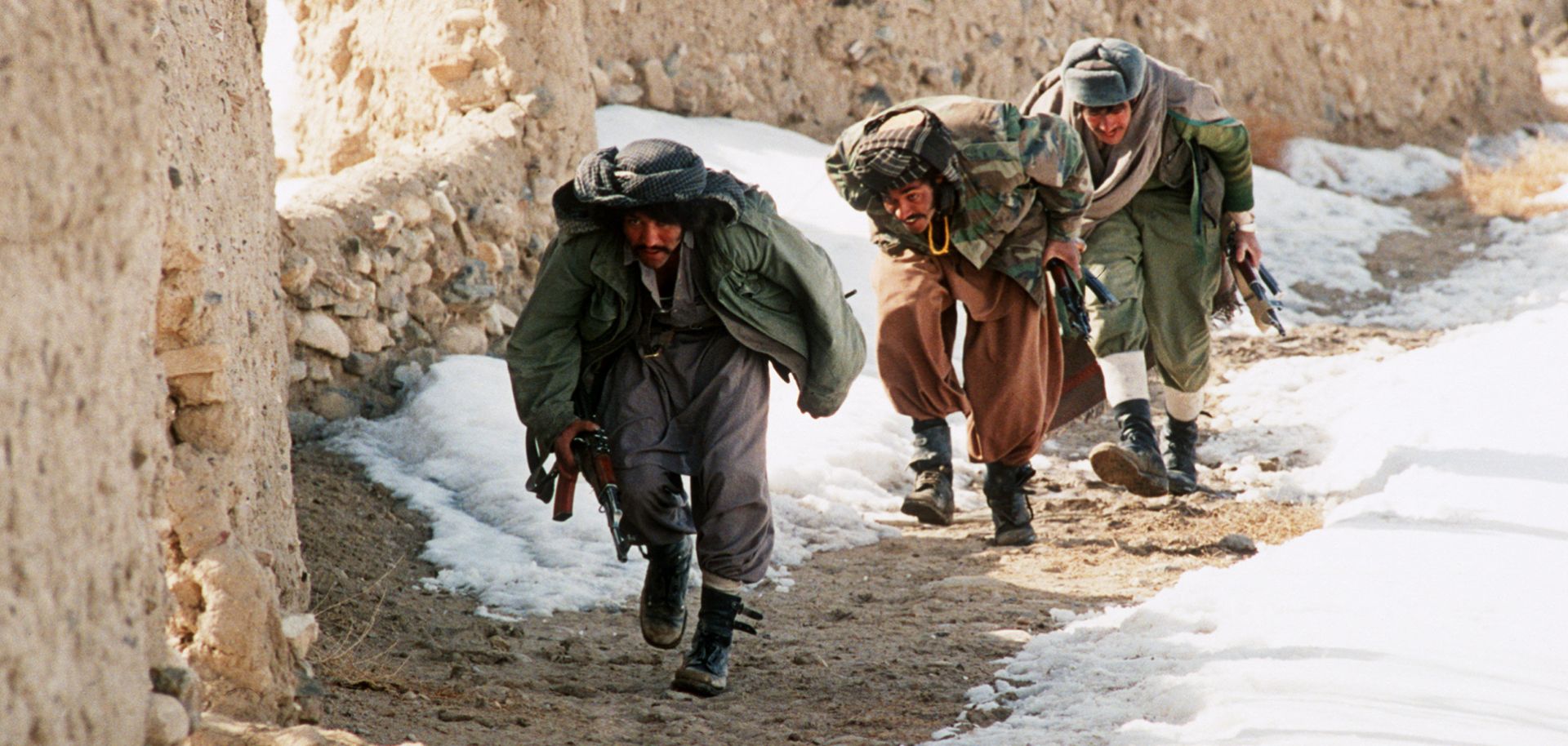COLUMNS
On the Anniversary of 9/11, We Reflect on the War Against Jihadism

Sep 11, 2018 | 09:30 GMT

A group of Afghan mujahideen progress behind a wall in a village of Ghazni in southern Afghanistan as they fight Soviet-backed government forces in March 1989. Al Qaeda, which was formed the previous year, continues to fight against the United States 30 years later.
(JOEL ROBINE/AFP/Getty Images)
Highlights
- Seventeen years after the 9/11 attacks — and 30 years after the founding of al Qaeda — there is no end in sight to the wars against jihadists.
- Like communist groups in the 20th century, jihadist groups are likely to split further in the 21st century due to differences in personality, theology and vision.
- Because military might is not enough to vanquish jihadists, governments such as the United States will also continue their efforts to defeat militants on an ideological level.
Subscribe Now
SubscribeAlready have an account?
